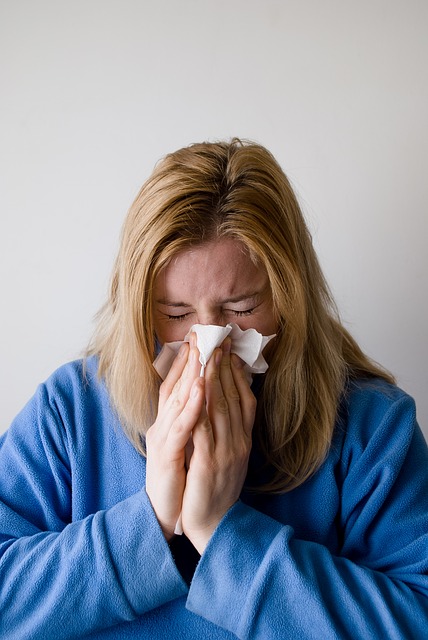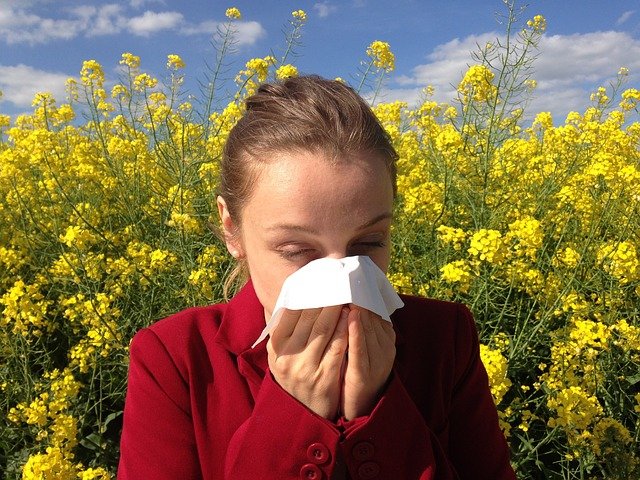Yes, childhood allergies can go away. According to the studies, 80% – 90% children outgrow of their common food allergies by the time they reach adulthood. Although most people grow out of their allergies in childhood, it is still possible to outgrow an allergy in adulthood.

A lot of people are not aware that allergies can go away. Many individuals believe that a certain allergy would follow them for their entire lives, but this is not true. The Asthma and Allergy Foundation of America reveals that a person can outgrow an allergy as they grow older.
Some individuals may outgrow a food allergy, but not everyone. Some people can outgrow seasonal allergies, such as hay fever.
However, if you are asthmatic and still have food allergies as an adult, it can be very dangerous, especially if the food allergen is something you ingest on a regular basis. This may cause anaphylaxis or an acute allergic reaction which can be life-threatening.
If you are struggling with constant symptoms that don’t seem to subside no matter what, contact your medical provider immediately for further evaluation and treatment options.
Asthma and allergies can be a real nuisance but most of the time there are ways to manage your condition. If you have allergies, you may wonder if they will go away when you get older. There are ways to manage allergies so that they do not interfere with your life. Some people, however, never outgrow their allergies. In addition, some who thought they had outgrown their allergies might find that they again have them later in life.

According to the studies, about more than 80% children outgrow their food allergies over time and it is difficult to say which percentage of children will outgrow asthma. Children with severe asthma are less likely to outgrow it in adulthood. Still, this doesn’t really rule out the possibility of outgrowing an allergy as an adult.
Can childhood food allergies go away?
Food allergy is a health problem that affects an estimated 50 million Americans. It is not an illness, but rather a condition whereby the body’s immune system reacts abnormally to certain foods. Food allergy is also referred to by other names such as food hypersensitivity, food intolerance, and food sensitivity. There are more than 160 different food substances that can cause allergic reactions, and these are grouped into foods, beverages, and additives.
Food allergies are common among children. Wheat, peanuts, wheat, cow’s protein milk, soy, and shellfish are among the most prevalent foods that cause allergy responses, according to the Asthma and Allergy Foundation of America. Most children overcome allergies to milk, peanuts, and eggs. A considerable proportion of adults never overcome their sensitivities to fish and shellfish.
Symptoms of food allergy can vary from person to person but typically appear within minutes after eating the problematic food. Typical symptoms include diarrhea or vomiting, skin rashes like hives or eczema, and swelling of the tongue or throat.
For children who are allergic to peanuts or nuts, there are instances that they react by having asthma attacks due to swelling of their airways. It is important for parents to be vigilant about symptoms and know what action to take when such an event occurs.
Some people will experience a more intense reaction known as anaphylaxis which can cause a drop in blood pressure leading to fainting or even death.
Can childhood pollen allergy go away?
Childhood allergies are caused by the immune system’s reaction to allergens. The immune system is always on the lookout for harmful substances in your body. When it detects an allergen, it goes into action, releasing chemicals that cause allergy symptoms such as sneezing, runny nose, and watery eyes.
The immune system eventually learns to ignore harmless substances like pollen, so allergies are less likely to continue into adulthood. However, not everyone outgrows their allergies. Many children grow into adulthood with some form of allergic rhinitis (hay fever).
There are many cases that adults and teenagers suffer from allergies in spring, summer, and autumn. These allergies are caused by the different types of pollens found in the air we breathe.
The most common tree pollen allergy is the pollen of birch tree which causes allergy symptoms such as itchy eyes, runny nose, sneezing and coughing. The second most common tree pollen allergy is caused by the pollen of elm trees and ash trees which causes similar symptoms.

Trees can also affect people with asthma and other respiratory problems as their pollens can reduce airflow to the lungs, thus making it harder for sufferers of such conditions to breathe normally. People with such conditions should consult their doctors before going into an area where these trees grow
When an allergy-causing substance enters the body, it triggers an immune system response that results in immediate symptoms. The body then produces antibodies that will help fight off this foreign substance in the future. Many IgE antibodies stay active for a long period of time in people who have a history of asthma or hay fever. Even if the pollen or other allergen doesn’t trigger a reaction for a long period of time, these antibodies may be ready to go into action when exposed again.
Air purifiers to remove allergens
Air purifiers use HEPA filters to remove dust, pollen, pet dander, and other airborne particles from the air. HEPA stands for “high-efficiency particulate absorption.” These filters are 99.97 percent efficient.
Filters come in two types: electronic and mechanical. Electronic ones rely on a fan to pull air through a filter while a sensor monitors pollutants in the air for any changes. When the filter gets dirty, an indicator light turns on signaling you to change it. Electronic filters cost more than mechanical ones but are better at removing germs, bacteria, odors, gases, and smoke particles from the air.
Air purifiers can be a great investment if you suffer from allergies. The best air purifiers remove pollen, animal dander, mold, and other allergens in your home and improve indoor air quality. If you are suffering from seasonal allergies, consider using an air purifier to keep your home clean and free of allergens.


